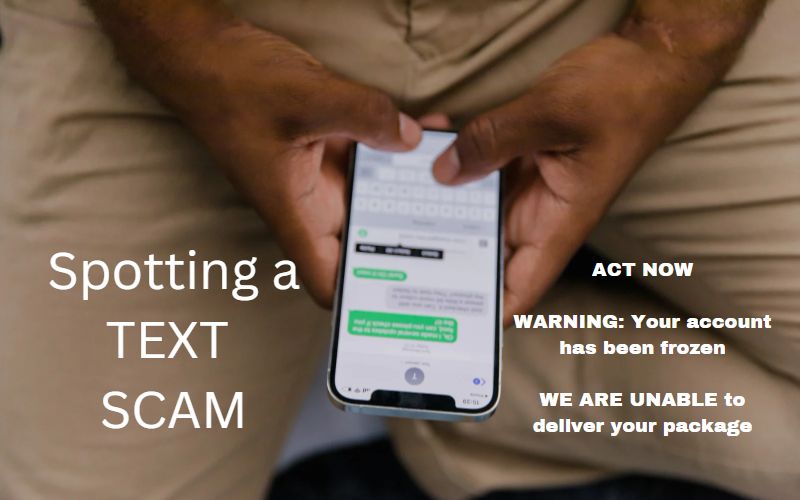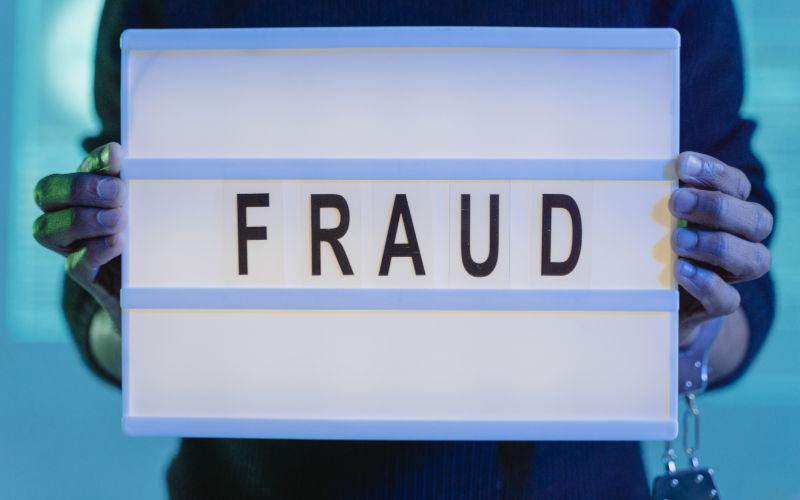do you know how to spot a text scam?
excerpted from Aura
Text scams (also known as “smishing”) are among the most common tactics scammers use to steal personal information. In 2021, scammers sent out 87.8 billion spam text messages and defrauded victims of over $10 billion. The numbers keep rising.
If you’ve received a suspicious text, don’t respond, click on links, or call any numbers. In this guide, you will learn what else to do to keep your identity and money safe from scammers.
How Do Text Message Scams Work?
Fraudsters implement numerous types of text message scams. But they all follow a similar pattern:
- You receive a text message from an unknown or “spoofed” number. Scammers use technology to make it look like they’re messaging you from a business or person you know (such as the IRS, Apple, or Amazon).
- The message creates a sense of urgency to get you to act quickly. For example, it may claim that your bank account has been closed or that you’ve won a free gift.
- Next, the scammer will try to get you to either respond, click on a link, or call a number.
In recent years, text scammers have become masters of human psychology. They know exactly what to say to get you to act without thinking.
What is the Goal of the Scammer?
Typically, text scammers have three goals:
- Getting you to click on a link that downloads malware onto your device. Once infected, hackers can spy on you, steal your passwords and sensitive information, or lock you out and demand a ransom.
- Sending you to phishing sites that steal your personal information. Links could also take you to fake websites designed to steal your passwords, credentials, or credit card numbers.
- Prompting you to call them. Once you’re on the phone, scammers can ask you to “verify” personal information (like your SSN or banking information) or target you with other social engineering attacks.
Any of these actions can result in immediate and long-term financial losses or even identity theft.
Don’t Get Scammed! How To Protect Yourself From Text Message Scams
Fake text messages are mostly harmless (unless you engage with them in any way). However, they’re also an early warning sign that you could be at risk of further scams.
Here’s what you can do to protect yourself from text message scams:
- Never click on links in unsolicited text messages. Scammers use links to infect your phone with malware or send you to fake websites that steal your information. Never click on a link in a text message unless you’re absolutely sure who sent it.
- When in doubt, contact the company, agency, or individual directly. Fraudsters can impersonate everyone from your bank to your boss. If you get a text message that you think you need to act on, contact the person or organization directly first to make sure it’s legitimate.
- Regularly check your credit report and bank statements. Text message scams are almost always after access to your financial accounts. Be on the lookout for the warning signs of identity theft — such as strange charges on your bank statement or accounts you don’t recognize. An identity theft protection service like Aura can monitor your credit report and bank statements for you and alert you to any signs of fraud.
- Remove your contact information from data broker lists. Scammers can buy your contact details from data brokers. Unfortunately, there are hundreds of data brokers in the US alone. Instead, Aura can automatically scan their databases for your info and request removals on your behalf.
- Consider signing up for identity theft protection. Aura’s top-rated identity theft protection monitors all of your most sensitive personal information, online accounts, and finances for signs of fraud. If a scammer tries to access your accounts or finances, Aura can help you take action before it’s too late. Try Aura’s 14-day free trial for immediate protection while you’re most vulnerable.
So, what text message scams should you be on the lookout for?
The 10 Latest Text Messages Scams To Avoid
- Missed delivery notification scam texts from UPS and others
- “Is this you?” messages purporting to be from a friend or colleague
- Text scams claiming that your bank is closing your account
- Texts claiming that you’ve won a prize or sweepstakes
- Texts claiming that your debit or credit card has been locked
- Text messages supposedly from the IRS or other government agencies
- Text messages from your own number
- Texts claiming that your payment for subscription services didn’t go through (Netflix, HBO, etc.)
- Texts about purchases you didn’t make (fake fraud alerts)
- Two-factor authentication (2FA) scam text messages
How can you identify these text message scams, and what should you do if you get one?






